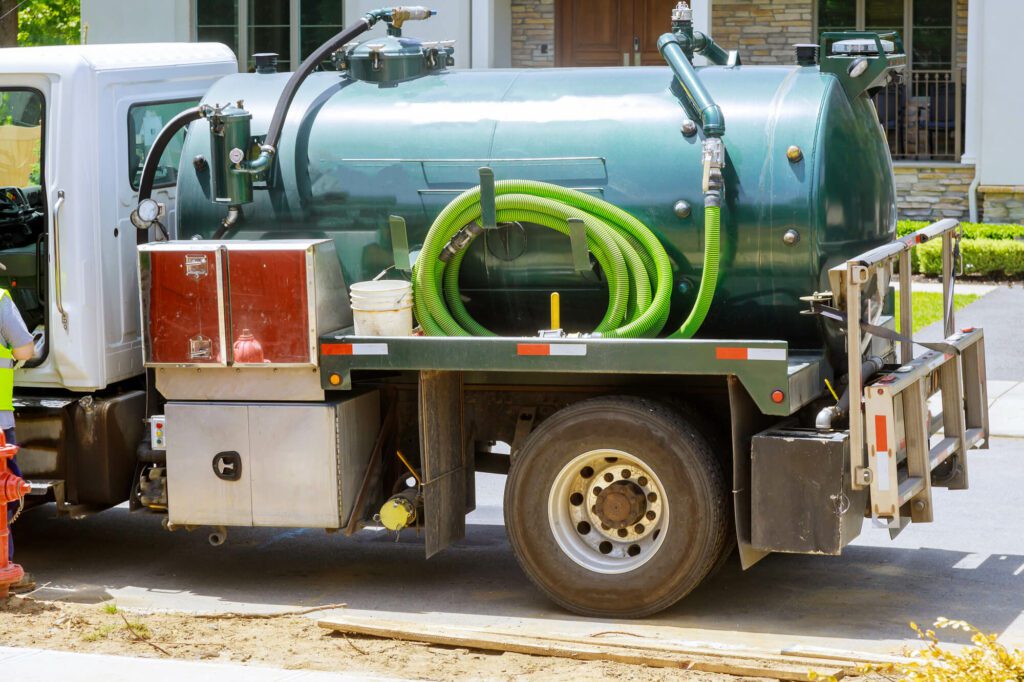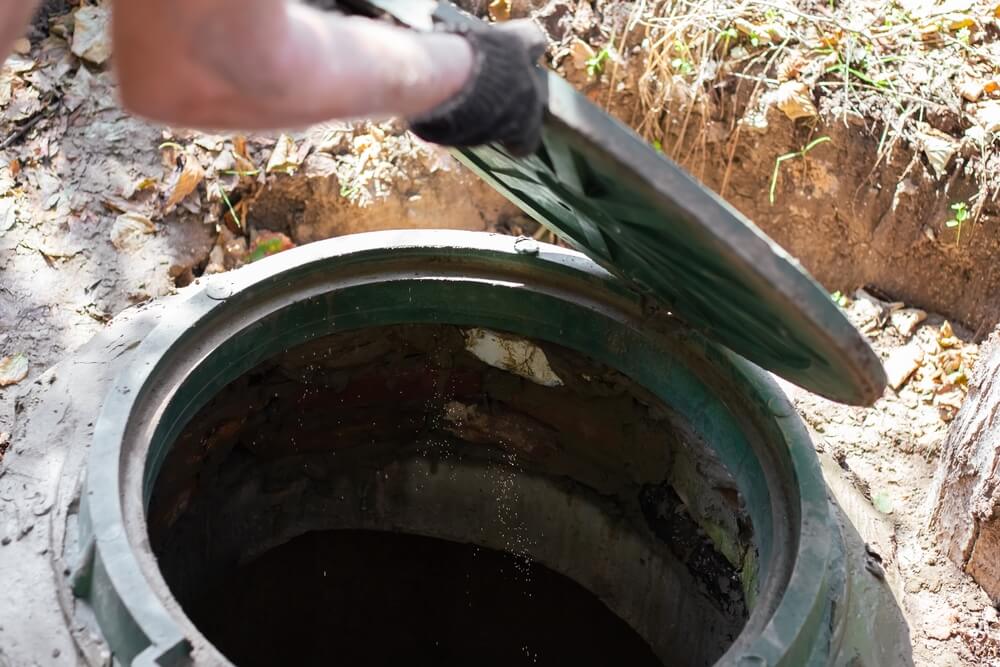Understanding the Basics of Septic Systems
Septic systems are a great component of wastewater treatment. They effectively treat sewage waste and discharge it safely into the environment. The septic system consists of a large underground tank that collects all the wastewater generated from household or commercial facilities. The septic system works by separating the wastewater into three distinct layers. The bottom layer is the sludge layer, primarily composed of organic solids that have settled to the bottom. Above this layer is the liquid effluent layer, which is a relatively clear liquid.
The top layer is a scum layer of oils, fats, and greases that float on top of the water. Bacteria present inside the septic system facilitate the decomposition process. They break down the organic matter in the wastewater, turning it into gases, sludge, and liquid effluent. The liquid effluent layer is then discharged into the drain field, also known as a leach field, seeping into the ground and naturally purifying as the soil filters it.
Regularly maintaining and pumping the septic system is necessary for correct operation. Variables such as tank size, the number of family members, and the amount of wastewater produced determine the frequency at which a septic system needs to work. Pumping intervals can range anywhere from once a year to every five years. So, it is necessary to know your septic system’s location.

Solving the Mysterious Septic Tank Challenge
Septic tanks are instrumental in removing all wastewater from the home, including kitchens and bathrooms. They serve as a storage facility for the wastewater from our homes. However, several factors can make locating septic tanks in some homes daunting. One of the significant challenges when finding septic tanks in your home is the absence of any physical markers or indicators. Most septic tanks are buried underground or hidden behind concrete walls, making them invisible to the naked eye. This lack of visibility makes it difficult for homeowners to know the precise location of their septic tanks, which, in turn, makes maintenance and repair work a challenging proposition.
Another challenge when finding septic tanks in your home is the age of your home. Older homes may need service records available, making it challenging to determine the exact location of septic tanks. Additionally, older homes may have outdated, corroded septic tanks that may be difficult to locate due to rust and decay. Furthermore, homeowners who have recently moved to new properties may need to gain knowledge or service records about their septic tank system, making it challenging to locate and maintain them.
Simple Methods to Locate Your Septic Tank
If your home relies on a septic system for wastewater treatment, knowing the location of your septic tank is primary for maintenance, inspection, and troubleshooting. Here are four straightforward methods to help you locate your septic tank:
Consult Property Records:
Begin your search by checking property records or documentation related to your home. It may include blueprints, construction plans, or any paperwork from previous homeowners that indicate the septic tank’s location. Local municipal offices or online databases can also provide these records.
Visual Clues in Your Yard:
Your yard can offer valuable hints about the septic tank’s position. Look for areas of your lawn that appear greener, healthier, or more vibrant than the surrounding grass. Septic systems often enrich the soil in their vicinity, leading to lusher growth. Additionally, search for small circular lids or covers that may slightly elevate from the ground because these serve as access points to the septic tank.
Follow Plumbing Lines:
Trace the plumbing lines leading from your house to the septic system. The septic tank lies along this path, usually closer to the home than the drain field. Inspect for any cleanout access points or inspection ports along the plumbing lines, which can serve as indicators.
Professional Locator Service:
If all else fails or you prefer expert assistance, consider hiring a professional septic tank locator service. These professionals employ specialized equipment like ground-penetrating radar or metal detectors to precisely pinpoint the septic tank’s location without causing any damage to your property.
Finding your septic tank is beneficial for various reasons, including regular maintenance, pumping, and addressing issues promptly. Using these straightforward methods, you can locate your septic tank and ensure that your septic system continues operating efficiently.
Concerned About Lead Paint? Call Now!
Spotting the Hidden Septic Tank: The Art of Measuring and Surveying
Performing grid searches with metal detectors or probe rods is a fundamental step in discovering the location of buried tanks, as it allows for the identification of any metallic objects within the area of interest. This process divides the search area into a grid system and explores each grid section systematically and methodically.
Metal detectors are highly effective in identifying ferrous metals, such as iron, whereas probe rods are handy for detecting the presence of non-ferrous metals, like aluminum. By utilizing both methods, technicians can increase their chances of success and accurately pinpoint the location of the tank.
Need a Sewer Line Inspection? We Have You Covered!
Experienced Professionals Will Ensure Accuracy and Precision
During the search, note any unusual readings or signals detected by the metal detectors or probe rods. The presence of metallic objects in unexpected areas may indicate the buried tank, and we can further refine the grid search to focus on that specific area.
Also note that performing grid searches with metal detectors or probe rods can be time-consuming and challenging and requires experienced professionals to ensure accuracy and precision. However, the benefits of completing this process can be significant, including restoring contaminated land to a safe and usable state.
Outsmarting Risks: Stay Ahead by Knowing Them Well
Although locating a septic tank may seem straightforward, one should consider several risks associated with this task. Failure to assume these risks can result in significant safety hazards and legal consequences. Firstly, if you are unfamiliar with the property’s layout, you may accidentally dig in the wrong place, causing damage to underground pipes or electrical lines. It can head into costly repairs and even pose a serious safety risk. Moreover, locating a septic tank can be difficult because it is typically underground. It means there is a risk of injury or damage to the tank or surrounding area during excavation.
Septic Tanks Can Pose a Risk to the Environment
In addition, it is worth noting that septic tanks often contain hazardous materials such as human waste, chemicals, and bacteria that can harm humans if not handled properly. Therefore, take proper safety precautions when locating and repairing a septic tank.
Furthermore, septic tanks can pose a risk to the environment if they are not properly maintained. When septic tanks leak or overflow, they can contaminate groundwater and nearby bodies of water, resulting in serious health risks and environmental damage.
Consult with a professional experienced in septic tank installation and maintenance expert to minimize the potential risk. These professionals can provide valuable insight and expertise that will help guarantee a safe and successful excavation process.
Request a Termite Inspection From Delmarva Inspections Group
Get It Done Right: Find Your Septic Tank With Professionals
Hiring a professional to locate your septic tank is of utmost importance for several reasons, and Delmarva Inspection Group recognizes the significance of this service. Here are some compelling reasons why you should rely on professionals to locate your septic tank:
Expertise and Experience:
Professional plumbers have the knowledge and experience to locate septic tanks accurately. They undergo training to identify the signs and markers that indicate the tank’s location, ensuring a precise and efficient search.
Prevent Property Damage:
Attempting to locate a septic tank without professional guidance can lead to accidental property damage. Professionals use non-invasive methods and specialized equipment to avoid digging up your yard unnecessarily, preserving your landscape and property value.
Safety & Compliance with Local Regulations:
Septic tanks can contain hazardous gases, bacteria, and other potentially harmful substances. Professionals possess safety gear and protocols to handle these risks, protecting your health and well-being. Hiring professionals ensures that locating your septic tank complies with local regulations and codes. It is essential for avoiding fines, penalties, or legal issues related to septic system maintenance.
Efficiency & Cost-Effective:
Professionals use advanced tools like ground-penetrating radar, sonar, or electronic locators to quickly and accurately pinpoint your septic tank’s location. This efficiency saves time and minimizes disruption to your daily life. While hiring professionals may involve an initial cost, it can save you money in the long run. Ensuring accurate septic tank location reduces the risk of costly emergencies by enabling efficient maintenance and pumping services.
Preventative Maintenance:
Professionals can offer valuable insights into the septic tank’s condition once they locate it. This information can help you schedule regular maintenance or address any issues promptly, preventing costly repairs or system failures in the future.
Protecting Your Properties, Health, and the Environment
Knowing that your septic tank is located and maintained by professionals gives you peace of mind. You can trust that they will complete the job correctly, protecting your property, health, and the environment. In conclusion, hiring professionals to locate your septic tank is essential for safety, efficiency, compliance, and long-term cost savings. Their expertise and equipment guarantee accurate and responsible job completion, benefiting your property and the environment.


















